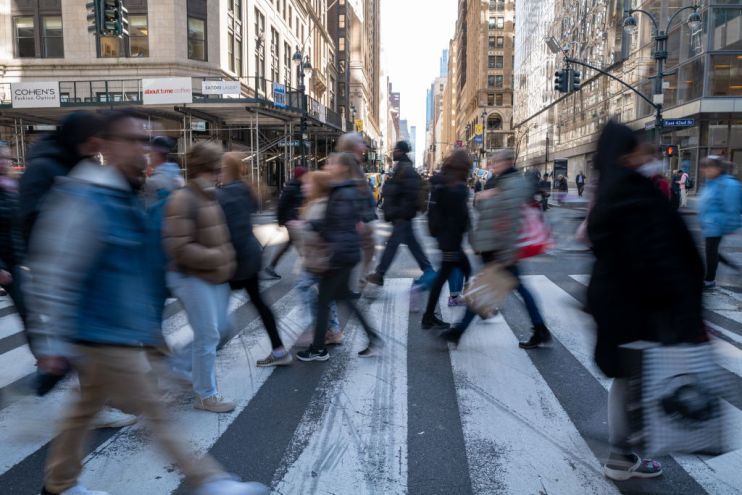New York tightens leash on home working as London TWaTs lag behind

The number of workers travelling into the office on a Friday is down -2.7 per cent year-on-year in London, but in New York, the figure is up 22 per cent, as employers across the Atlantic tighten the leash on home working trends.
New figures from Essensys, shared with City A.M., show that across all five working days, employees in the Big Apple are flocking back to the office at a significantly higher rate than its UK rival.
Both cities are approaching year four of the hybrid working battle with employees still pushing to split their time between home and the office following the pandemic.
In London, Tuesdays, Wednesdays and Thursdays are continuing to prove popular with footfall up over 14 per cent, five per cent and 11 per cent respectively — a working trend previously coined as TWaTs.
But in New York, footfall on the same three working days is up by 32 per cent, 36 per cent and 38 per cent.
New York has seen a sharper year-on-year increase given that the return to offices in 2022 was far slower than in London, so the occupancy growth is coming off a much lower base, according to the research.
Earlier this year, a host of American-owned businesses such as Disney and Amazon clamped down on hybrid working trends.
In June, Google also made headlines after it emerged that the search engine and mobile phone maker would begin tracking staff office attendance and including employees’ frequency in the office in performance reviews.
In London, employees’ hesitancy to return to the office full time has had an impact on the health of commercial properties, especially in the City.
According to research from Savills, weekday occupancy levels are continuing to lag behind, sitting at 50 per cent in September up slightly 48 per cent in February and 36 per cent in June.
Office workers ditching commuting on a Friday has also rejigged busy trading days for pubs — with many now reporting that Thursday is its most popular day as opposed to Friday.
Karim Fatehi MBE, interim chief executive officer of the London Chamber of Commerce and Industry (LCCI), said: “London is a global city renowned for its entrepreneurial innovation and creativity. Our businesses and employees come together from all walks of life to collaborate and brainstorm innovations, which in turn create shared prosperity, productivity and growth.
“While flexible working has become an important and established part of the economy and allows employees to exercise greater control over their work schedules, we must recognise that it has dramatically impacted footfall in city centres, which in turn has knock-on consequences for businesses that cater to office workers and commuters.”
Fatehi continued: “It also reduces opportunities for social interaction, which is the very basis of personal development and growth. Working from home is not a one-size-fits-all-all policy — this is especially true for sector-specific jobs such as hospitality and construction which require workers to be in-person.”
“As we continue to rebuild from the pandemic behind, London must match the pace of other global cities to make sure the city retains its attractiveness for businesses and workers,” added the interim CEO.